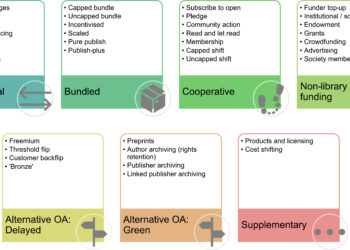In addition to indexing news sites, Google is now apparently moving to index the real-time Web, announcing yesterday that the new sources like Twitter and Facebook will be added over the next few days. To get an idea of what this will look like, I’ve inserted the short video below:
Yesterday, I noted how the useful lifespan of news was shrinking to seconds with services like Google News and other feed-based and email alerting systems. Now, with the real-time Web moving mainstream and growing in ubiquity, news as a value proposition outside of the real-time Web seems increasingly unlikely.
As Jason Jones asked in an infamous segment on the Daily Show with Jon Stewart, “Why is ‘aged news’ better than real news?”
Short answer: It’s not.
What might this mean for information specialists, publishers, and editors? Tweets may beat your email alerts, and they’ll be indexed. Embargoes broken by Twitter and Facebook may be increasingly problematic. And perhaps most significantly, the audience will become even more powerful as they become the real-time Web and it becomes part of Google.
Google paid Facebook and Twitter to participate in this search initiative. Did they pay for content? Not exactly, since they don’t know the content they’ll get at any moment. Instead, they paid for permission and audience, for integration into these real-time watering holes. But people can’t be commoditized like the news, which points to how social media will ultimately become commercial in a big way.
The age of publisher-centric commodity information is ending.
Discussion
2 Thoughts on "Google Will Begin Adding Real-time Search Results in the Next Few Days"
Does that mean that currency of content will matter more than relevancy? Is Google effectively changing the way they calculate PageRank, or are these search results going to be separated in some way? From the video it seems that this will be a separate feed – will users be able to turn it off – it might be the case that some people don’t want to read fan-babble first?
I can see this change actually driving some Google users to look for more serious sources of information – the real time results might actually get in the way.
This is going to further the tensions between speakers at meetings who are willing to present unpublished data and those intent on the instant dissemination of any information they come across. For what it’s worth, I’m currently at the American Society for Cell Biology meeting, and scattered throughout the conference center are signs (and slides between talks) that read the following:
“Twittering and other forms of communication involving replication of data are strictly prohibited at all sessions, in the Exhibit Hall and in the Poster Sessions.”
Or alternately:
“Sharing images and/or text of data is prohibited. Respect the willingness of presenters to share their data at the meeting and protect their publication opportunities”
![Reblog this post [with Zemanta]](http://img.zemanta.com/reblog_e.png?x-id=70db2e27-2e26-4cf1-9e20-8df347808b4a)


